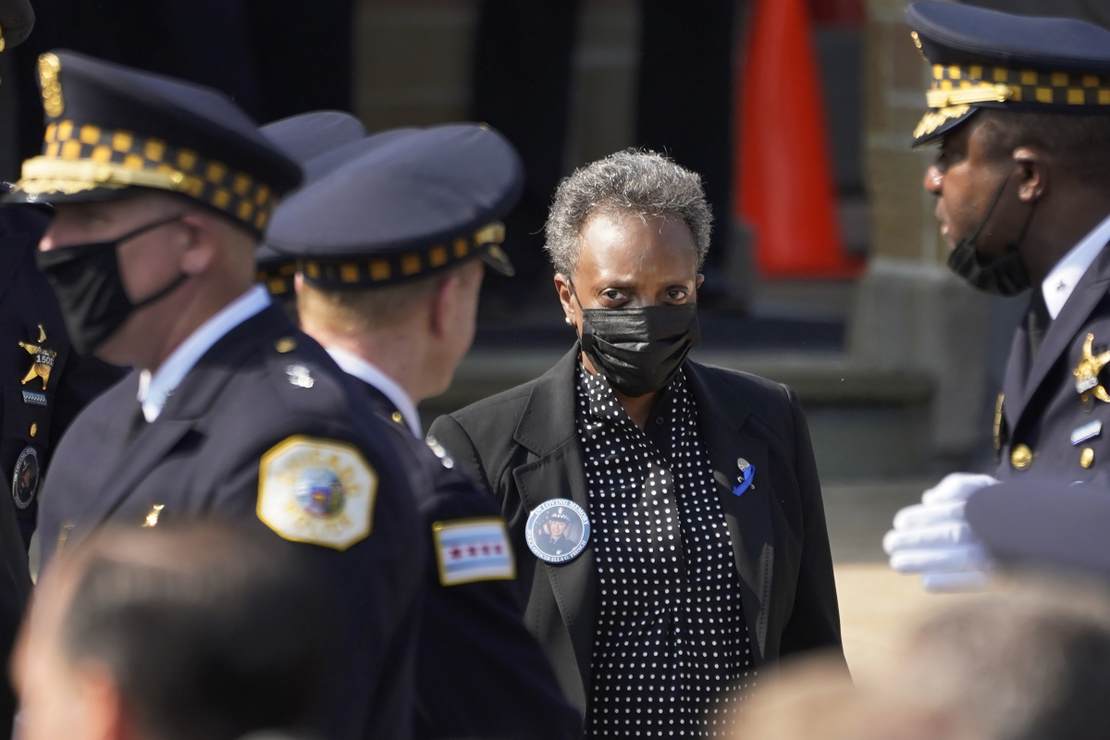
It’s a rare day when we have the opportunity to point out the administration of Lori Lightfoot in the City of Chicago doing something right, but we should seize that opportunity when it comes along. This may be one of those days. CBS News in Chicago is reporting this week that a new program to fight crime in the Windy City has been launched and for once it doesn’t involve defunding the police or sending people with clipboards out to try to reason with the gangbangers. The new initiative is named the Home and Business Protection Program (HBPP), and for once, it seems to be designed to do precisely what the name implies. Under the HBPP, most people who own or manage a building of any sort will be eligible to be reimbursed by the city if they install outdoor security cameras and other related equipment and make any information gathered in that fashion available to the police.
Mayor Lori Lightfoot on Monday announced the launch of the city’s new the Home and Business Protection Program (HBPP) – in which anyone who lives, runs a business, or owns or leases a car in Chicago can be reimbursed for private security devices to protect their property.
Mayor Lightfoot was joined by city Community Safety Chief Coordination Officer Tamara Mahal, the Rev. Michael Pfleger, and other officials for the announcement at St. Sabina Church in Auburn Gresham.
“We are taking a public health approach to community safety, and that means activating resources across a range of programs, policy changes, and activities,” Mayor Lightfoot said in a news release. “The Home and Business Protection Program serves as our newest resource to support this effort, and it is part of a larger strategy that includes historic investments in affordable housing, mental health, and violence prevention. We encourage all residents to take advantage of this program and join us in our efforts to create safer communities all across our city.”
The program doesn’t just apply to business owners and homeowners. Churches and other nonprofits can take part as well. Even renters will be able to participate with their landlord’s permission. In addition to reimbursing some of the money spent on security cameras, at least some of the costs for cloud storage of videos and motion-activated outdoor lights will be covered as well.
READ RELATED: Biden-Voter Focus Groups Expose Just How Screwed Democrats Are
The amount of money being made available to each applicant seems reasonable. It covers up to $225 per camera for a maximum of two cameras. Annual subscriptions to cloud-based video storage companies will be covered for up to $150. Two motion-activated lights will be reimbursed up to $100 each.
Also, there are no racial, demographic, or even income requirements to qualify. Applicants simply need to prove that they legally own or rent the property, provide proof of purchase of the equipment, and submit photographic evidence that it was installed.
Lightfoot is taking a bit of a political risk here, for which she should be congratulated. Typically, the liberals that comprise her base of support hate the idea of video surveillance cameras being used anywhere. They base this opposition on a variety of concerns including supposed invasions of privacy to the claim that such surveillance systems are racist. (Because of course they are.)
These systems will not be required to be connected to the Chicago Police to qualify for the rebates, but a link is provided to do so. And even then, the police will not be able to access the video storage without the permission of the owner. This should alleviate at least some of the concerns I mentioned.
Checking local security cameras in the immediate aftermath of a reported crime is one of the surest ways for the police to identify suspects and potentially follow them to where they went to ground. The more of them there are on the streets of Chicago, the easier it will be to bring the guilty to justice. (Assuming they can find anyone willing to prosecute them and put them behind bars, but that’s a debate for another day.) So I’m tipping my hat to the Lightfoot administration today. More of these types of initiatives are needed if you’re serious about taking the streets of Chicago back from the gangs.
Source:



